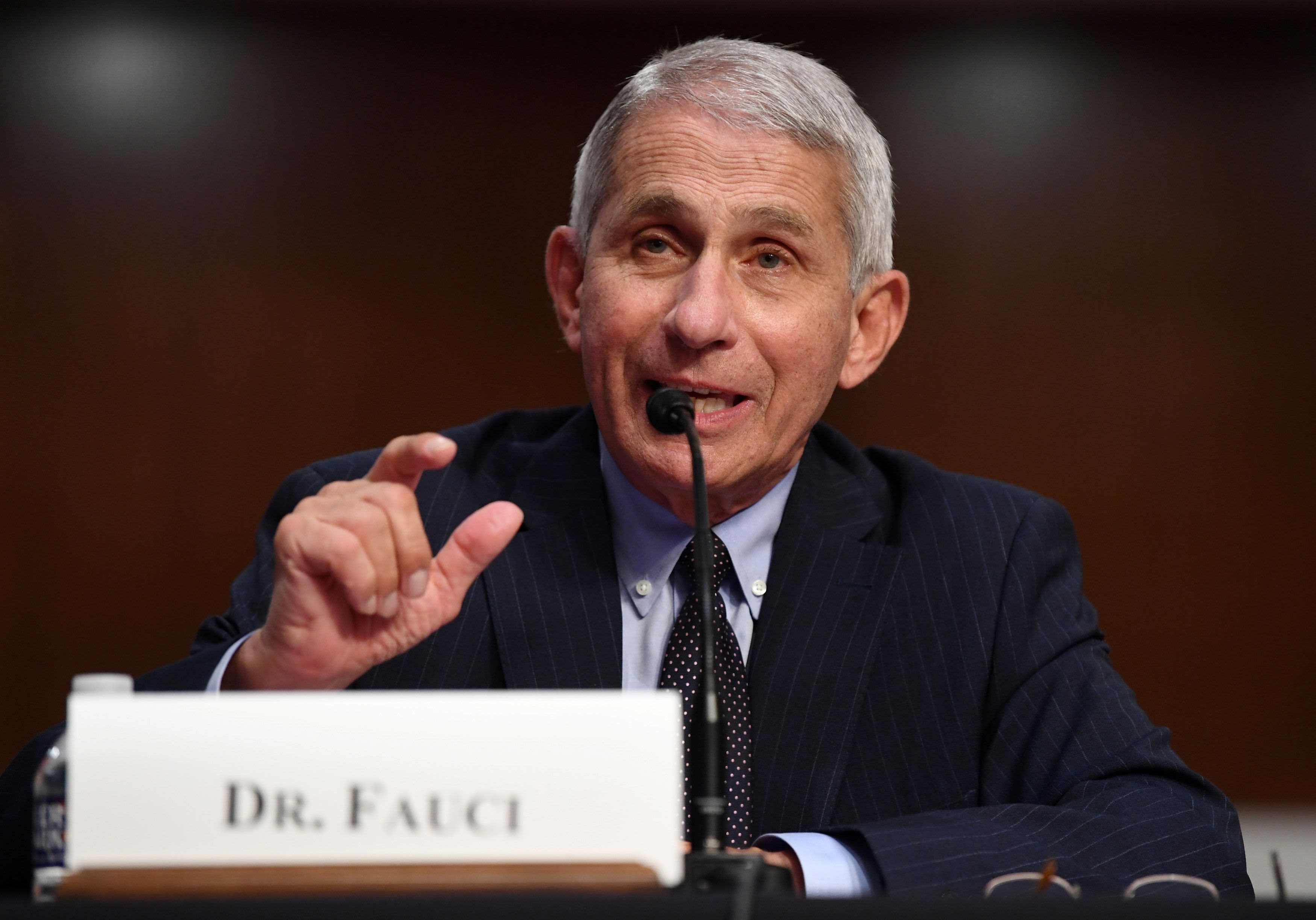The average age of new coronavirus patients has dropped by roughly 15 years compared with only a few months ago as the coronavirus reignites in America’s Sun Belt, White House health advisor Dr. Anthony Fauci said Monday.
Fauci, director of the National Institutes of Allergy and Infectious Diseases, said during a Q&A discussion with Dr. Francis Collins, director of the National Institutes of Health, that the resurgence of cases in the U.S. is an extension of the outbreak first reported earlier this year, not a second wave.
“It’s a serious situation that we have to address immediately,” he said.
The U.S. has continued to push farther beyond what some previously thought was its peak earlier this year, reporting thousands of new cases each day. States like Florida and Texas have recently reported daily infections in the thousands and growing hospitalizations.
Cases surged after some states rushed to reopened their economies in May. Many have since walked back their reopenings, re-closing bars and indoor dining at restaurants as many young people disregarded social distancing and face mask recommendations, officials say.
“The average age of people getting infected now is a decade and a half younger than it was a few months ago particularly when New York and New Orleans and Chicago were getting hit very badly,” Fauci said.
Florida Gov. Ron DeSantis said the median age of new Covid-19 patients in his state, which reported a record number of new cases over the holiday weekend, has reached a low of 33. By comparison, the median age of a newly diagnosed coronavirus patient in their 50s and 60s in March and April, he said at a press conference Monday.
“Now why is that important? Well, because this is a virus that does not affect all age groups equally. It’s much more lethal for people who are in their 80s and 90s than it is in your 20s and 30s,” he said.
The fatality rate is significantly lower among Gen Y and millennials, he said adding that many of those cases are asymptomatic. ”Just because you’re 21 and you may not have significant symptoms that does not mean you can’t affect other people and I think that’s something that we’re concerned about,” he said.
While young people are less likely to develop serious illnesses from Covid-19, Fauci warned that the virus could still “put them out of action for weeks at a time.”
They should also remember that when they’re infected, there’s the likelihood that they could spread the disease to people who are at high risk of serious illness, Fauci said.
“They could infect someone who infects someone, and then all of a sudden someone’s grandmother, grandfather or aunt who’s getting chemotherapy for breast cancer gets infected,” he said. “You’re part of the propagation of the pandemic, so it’s your responsibility to yourself as well as to society to avoid infection.”
Dr. Deborah Birx, the White House coronavirus response coordinator, has previously warned that the coronavirus poses a greater risk to those with underlying health conditions, such as diabetes and significant obesity, which are seen in every age group.
“We do know that we have people in the younger age groups with significant Type 1 diabetes and may also have individuals with significant obesity,” Birx said at a White House task force press conference on June 26. “We know that those are risk factors, so risk factors go with your comorbidity, not necessarily with your age.”
